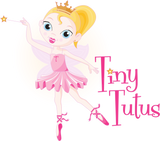Why the Parents Stay in the Room at Tiny Tutus (and How It Helps)
Some dance studios ask parents to leave, but at Tiny Tutus, we keep you in the room, and it’s not just for show. Having you nearby helps your ballerina feel safe, confident, and connected. It builds trust, eases anxiety, and supports her emotional growth. You're not a distraction, you're part of the magic.
You’ll notice something a little different when you step into a Tiny Tutus studio.
The chairs along the back wall aren’t there for decoration. They’re there for you.
In a world that’s constantly pushing parents out of the room... school gates, daycare drop-offs, playgroups with “let them go” policies, Tiny Tutus chooses a different path.
We invite you to stay. We want you there. And there’s a very good reason why.
Presence builds confidence.
For many preschoolers, the dance studio is their first independent activity. It’s big, it’s busy, it’s full of music and movement and unfamiliar routines.
When they look up mid-pirouette and see your familiar face quietly watching from the back of the room, it grounds them. They feel safe enough to try again. They know they can take risks because their anchor is close by.
For our littlest ballerinas, especially those in our 16-month to 2.5-year-old classes, this kind of emotional scaffolding is essential. You’re not just a spectator. You’re part of the foundation.
Behaviour improves with proximity.
Some parents worry, “Won’t my child act out more if I’m there?”
Actually, we find the opposite. The structured environment of Tiny Tutus, paired with your calm presence, often results in better listening, faster transitions, and more emotional regulation, especially in those early weeks.
You’re not hovering. You’re not involved in discipline. You’re simply there. And that subtle support makes a world of difference.
It aligns with early childhood best practice.
Tiny Tutus isn’t daycare-style entertainment. It’s a research-backed dance curriculum, developed by experienced early childhood educators and ballet professionals.
And in that world, we know: parent presence works.
From a developmental psychology lens, separation isn’t a goal in itself. True confidence comes from attachment, not forced independence. By keeping parents in the space, quietly, respectfully, consistently, we support the natural growth of autonomy in a way that’s emotionally safe.
It’s not forever. But it matters now.
As your ballerina grows older and gains confidence, her need for your proximity naturally changes. Some kids happily wave you off at age 3. Others peek over their shoulder at age 5. There’s no perfect timeline.
What matters is that she knows you were there when it counted.
Those early weeks, when she needed a deep breath and a glance at Mum before joining in, are the groundwork for a future filled with confidence, independence, and stage-ready sparkle.
